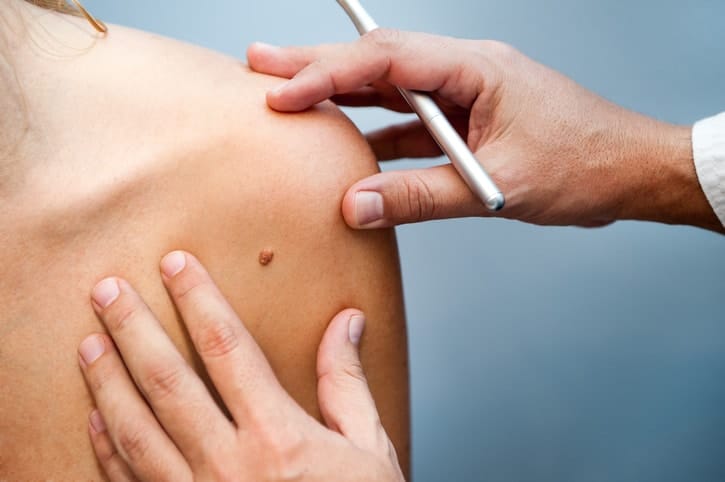Is Skin Cancer Genetic?

One in five Americans will develop skin cancer at some point in their lifetimes. While you may hear a lot about the risk of sun exposure as a cause (and that’s certainly true), this cancer often has a genetic component to it. In this blog, board-certified dermatologists of Keys Dermatology in the Florida Keys explains more skin cancer and its genetic link:
What is skin cancer and what are the different types?
Skin cancer is the uncontrolled growth of abnormal skin cells. The following are its most common types:
- Basal cell carcinoma: The most common type, it is most often found in people with fair skin but can also affect those who have darker skin. It’s usually found in areas of your body that are exposed to the sun, but can appear anywhere.
- Squamous cell carcinoma: The second most common type of skin cancer, it most often is found on areas that get frequent sun exposure. It can grow deep in the skin, where it can cause damage.
- Melanoma: The rarest form of skin cancer is also the deadliest. It can appear anywhere on your body, but is often found on the face, trunk, or lower legs. It can also occur on the soles or palms or under the nails of people who have darker skin.
What are the basic symptoms of skin cancer?
Symptoms can vary somewhat based on the type. They include the following:
Symptoms of Basal cell carcinoma:
- Pearly or shiny bumps or spots
- Scaling and flaking lesions or one that form scabs or sores
Symptoms of Squamous cell carcinoma:
- A firm red or pink nodule
- A flat patch with a scaly, crusted surface
Symptoms of Melanoma:
- A large brownish spot that has darker speckles
- A mole that changes color or size or that bleeds
- A mole that has asymmetrical halves that don’t look the same
- A mole that has irregular or poorly defined borders
- A mole that’s multi-colored
- A mole larger than the size of a pencil eraser
How do genetics play a role in the development of skin cancer?
Skin cancer is most often caused by sun exposure, but several specific genes have been linked to an increased risk of developing these cancers. This is true of the three main types, and if your parents or a sibling has had skin cancer, you may have an increased risk of getting it. About 5 to 10 percent of all melanomas occur in causes where more than one family member has the disease.
More research is being conducted to see if the use of chemical agents can prevent skin cancer in people who have an increased risk of getting the disease due to genetics. If you have a close relative who’s had this cancer, you should be especially vigilant about using sunscreen and checking for suspicious moles or other spots on your body.
What are other risk factors for skin cancer?
Other risk factors include the following:
- Fair skin
- Excessive sun exposure
- A history of even one blistering sunburn
- Having lots of moles
- Precancerous lesions that look rough and scaly
- A prior history of skin cancer
- A weakened immune system from diseases such as HIV/AIDS
- Exposure to radiation or dangerous substances
If you have close relatives who have had skin cancer or have a mole you’d like to have examined, make an appointment today with Keys Dermatology in our Islamorada or Key West, FL location. We’ve been providing the highest level of dermatological services to patients in the Florida Keys area for over 25 years.

